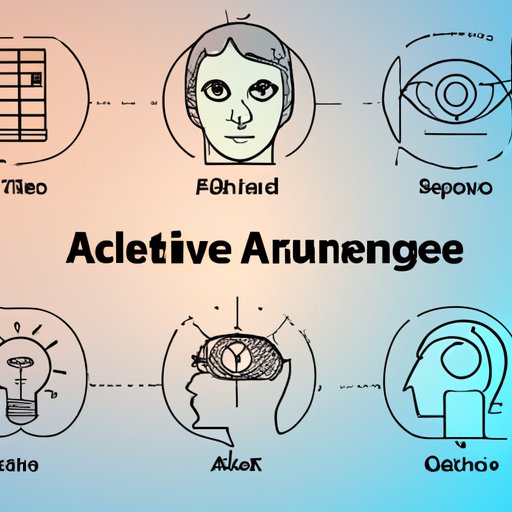Introduction
Artificial intelligence is a revolutionary technology that has already had an immense impact on our lives. But can it also be used to predict the future? Could AI be the key to unlocking the secrets of what’s to come? In this article, we’ll explore the possibilities of AI to make predictions and examine the pros, cons, and challenges of relying on AI for forecasting.
Exploring the Possibilities of AI to Make Predictions
One of the most promising applications of AI is its ability to use machine learning algorithms to “learn” from data and make predictions about future outcomes. By analyzing large datasets, AI systems can identify patterns and trends that can then be used to anticipate future events. This technology has already been used in a variety of industries, including finance, healthcare, retail, and agriculture.
For example, AI-powered financial forecasting tools can be used to predict stock market movements and help investors make more informed decisions. In healthcare, AI can be used to analyze patient records and diagnose diseases more accurately. And in retail, AI can be used to anticipate customer demand and adjust supply chains accordingly.
But the potential of AI to make predictions doesn’t stop there. AI systems could also be used to predict weather patterns, forecast economic trends, and even anticipate political developments. The possibilities are endless, and the implications are far-reaching.
Examining the Pros, Cons, and Challenges of AI and the Power to Predict
The use of AI to make predictions comes with both advantages and disadvantages. On the plus side, AI systems can process vast amounts of data quickly and accurately, allowing us to make more informed decisions about the future. AI-powered predictive models can also help us identify potential risks and opportunities before they arise, giving us a better chance of success.
However, AI-based predictions can also be unreliable. Without proper oversight and validation, AI systems can easily make mistakes or misinterpret data, leading to inaccurate predictions. Additionally, AI systems require a significant amount of computing power and may not be able to keep up with rapidly changing conditions.
Finally, there are ethical considerations when it comes to using AI for predictions. AI systems can make decisions that have far-reaching consequences, and there is a risk that these decisions could be biased or unfair. As such, it’s important to ensure that AI systems are designed and implemented responsibly.
Conclusion
The potential of AI to make predictions is undeniable. With the right algorithms and data, AI systems can analyze large amounts of information and identify patterns that can be used to anticipate future events. However, there are both advantages and disadvantages to using AI for predictions, as well as ethical considerations that must be taken into account.
In conclusion, AI has the potential to revolutionize the way we think about the future. While there are still many challenges to overcome, AI could be the key to unlocking the mystery of what’s to come.
(Note: Is this article not meeting your expectations? Do you have knowledge or insights to share? Unlock new opportunities and expand your reach by joining our authors team. Click Registration to join us and share your expertise with our readers.)
